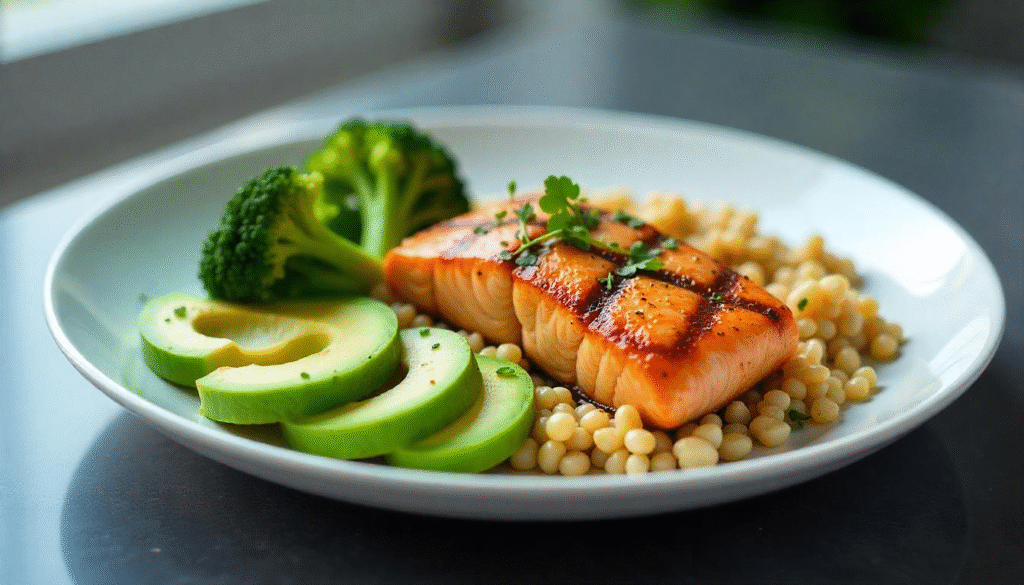Hey there! If you’ve been scrolling through TikTok lately, you’ve probably stumbled across the water fasting trend. It’s everywhere—people sipping only water for days, claiming it’s a game-changer for weight loss, detox, and even mental clarity. But the big question is: Is water fasting safe for weight loss in 2025? As someone who’s curious about health trends but wants to stay safe, I’ve dug into the science, the risks, and what experts are saying to figure out if this viral craze is worth trying or just another social media fad. Let’s break it down together, like we’re chatting over coffee.
I’m no doctor, but I’ve sifted through research, expert opinions, and real-world experiences to give you the lowdown. Whether you’re tempted to try water fasting or just want to know what the hype is about, this post will help you make sense of it. Ready? Let’s dive in!
Table of Contents
- What Is Water Fasting, Anyway?
- The Hype: Why TikTok Loves Water Fasting
- Is Water Fasting Safe for Weight Loss in 2025?
- The Potential Benefits
- The Risks You Need to Know
- What Experts Say About Water Fasting
- Safer Alternatives to Water Fasting
- How to Approach Water Fasting Safely (If You Must)
- Final Thoughts: Is It Worth It?
- Call to Action
What Is Water Fasting, Anyway?
Picture this: for a set period—anywhere from 24 hours to several days—you consume nothing but water. No food, no juice, no supplements, just plain H2O. That’s water fasting in a nutshell. It’s not the same as intermittent fasting, where you might skip meals for a few hours or eat in specific time windows. Water fasting is hardcore—you’re cutting out all calories entirely.
Some folks do it for spiritual or religious reasons, like during Ramadan or Lent, but the TikTok crowd is mostly hyping it for weight loss or “detoxing” the body. The idea is that by giving your digestive system a break, your body burns stored fat for energy, leading to quick weight loss. Sounds tempting, right? But before you grab a water bottle and ditch your snacks, let’s look at why this trend is blowing up.

The Hype: Why TikTok Loves Water Fasting
TikTok is a hotspot for health trends, and water fasting is no exception. Videos with hashtags like #WaterFasting or #FastingForWeightLoss rack up millions of views, showing people sharing their “before and after” transformations or talking about feeling “reborn” after a fast. One guy, Addis Miller, went viral for losing 13 kilos in 21 days through water fasting, posting his journey on YouTube and Instagram. These stories are inspiring, but they don’t always tell the full picture.
The appeal is obvious: fast results, no complicated meal plans, and a sense of “resetting” your body. Plus, TikTok’s short, flashy videos make it look easy. But here’s the thing—social media influencers aren’t usually doctors or nutritionists. So, when we ask, “Is water fasting safe for weight loss in 2025?” we need to go beyond the hype and look at the science.
Is Water Fasting Safe for Weight Loss in 2025?
Let’s cut to the chase: water fasting can lead to weight loss, but it’s not necessarily safe or sustainable for everyone. Research shows you might lose 4–10% of your body weight during a water fast, depending on how long you do it (say, 5–20 days). But there’s a catch—most of that weight isn’t just fat. You’re also losing water, glycogen (stored carbs), and even lean muscle mass. Yikes.
The Potential Benefits
Water fasting isn’t all bad news. Some studies suggest it could have benefits when done under medical supervision:
- Weight Loss: By cutting out all calories, your body burns stored fat for energy, leading to rapid weight loss in the short term.
- Improved Insulin Sensitivity: Some research points to better blood sugar control, which could help with managing type 2 diabetes.
- Autophagy: This is a fancy term for your body’s process of cleaning out damaged cells. Limited studies (mostly in animals) suggest fasting might boost this process, potentially reducing the risk of chronic diseases.
- Mental Clarity: Some people, like Addis Miller, report feeling sharper or more focused during a fast, though there’s not much hard science to back this up.
Sounds promising, right? But before you get too excited, let’s talk about the risks.

The Risks You Need to Know
Here’s where things get serious. Experts like Krista Varady, a nutrition professor at the University of Illinois, warn that water fasting can be risky without medical oversight. Here’s why:
- Muscle Loss: When you don’t eat protein, your body starts breaking down muscle for energy. In fact, studies show you might lose two-thirds of your weight as lean mass (muscle) and only one-third as fat. That’s the opposite of what you want for healthy weight loss.
- Nutrient Deficiencies: Going days without food can lead to shortages of vitamins, minerals, and electrolytes, causing dizziness, fatigue, or worse.
- Electrolyte Imbalances: Drinking water without balancing electrolytes (like sodium and potassium) can mess with your body’s balance, potentially leading to dehydration or heart issues.
- Eating Disorder Risks: Varady notes that long fasts might trigger unhealthy relationships with food, especially if you’re prone to disordered eating.
- Rebound Weight Gain: Once the fast ends, your body might struggle to process food again, and many people gain back the weight they lost—sometimes more.
Dr. Robert Glatter, an emergency medicine physician, goes further, saying water fasting can be “dangerous at best, but could ultimately prove fatal” for people with conditions like kidney disease. So, is water fasting safe for weight loss in 2025? Without a doctor’s supervision, it’s a risky move for most people.
What Experts Say About Water Fasting
The consensus among experts is clear: water fasting isn’t something to try on a whim. Krista Varady, who’s studied fasting extensively, says there’s not enough research to set safety guidelines for water fasting, and the studies that do exist involve close medical monitoring. Dietitians like Scott Keatley and Deborah Cohen warn that it doesn’t teach sustainable habits and could lead to disordered eating.
On the flip side, some research, like a 2024 study in Nature Metabolism, found that a 7-day water fast led to changes in proteins that could benefit major organs. But even then, the benefits tapered off after three days, and participants were closely monitored. The takeaway? If you’re curious about water fasting, talk to a doctor first—especially if you have conditions like diabetes, heart issues, or a history of eating disorders.
Safer Alternatives to Water Fasting
If the risks of water fasting are giving you pause, don’t worry—there are safer ways to lose weight or improve your health. Here are a few expert-backed options:
- Intermittent Fasting: Instead of cutting out food entirely, try eating within a specific window, like 8 hours a day (16:8 method). It’s got more research behind it and can help with weight management without extreme deprivation.
- Balanced Diet: Focus on whole foods—veggies, lean proteins, healthy fats, and whole grains. It’s not flashy, but it’s sustainable and nourishes your body [Link to healthy eating guide].
- Exercise: Pairing a balanced diet with regular movement, like walking or strength training, is a proven way to lose fat while preserving muscle [Link to workout tips].
- Medically Supervised Fasting: If you’re set on fasting, programs like Buchinger fasting (popular in Europe) allow small amounts of juice or broth under a doctor’s care, reducing risks.
Check out Harvard Health for more on sustainable weight loss strategies.

How to Approach Water Fasting Safely (If You Must)
Still curious about water fasting? If you’re determined to try it, here’s how to minimize risks:
- Talk to a Doctor: This is non-negotiable, especially if you have health conditions or take medications.
- Start Small: Try a 24-hour fast instead of jumping into a multi-day one. It’s less taxing on your body.
- Stay Hydrated: Aim for 2–3 liters of water daily, and consider adding electrolytes (with your doctor’s OK) to avoid imbalances.
- Break the Fast Gently: Reintroduce food slowly with small, easy-to-digest meals like broth or fruit to avoid shocking your system.
- Listen to Your Body: Feeling dizzy, weak, or off? Stop and eat something. Your health comes first.
For more detailed guidance, visit Medical News Today for expert-reviewed tips on fasting safely.
Final Thoughts: Is It Worth It?
So, is water fasting safe for weight loss in 2025? Honestly, it’s a mixed bag. You might shed pounds quickly, but the risks—muscle loss, nutrient deficiencies, and potential health complications—make it a tough sell for most people. Without medical supervision, it’s more likely to do harm than good. Plus, the weight often comes back once you start eating again, which can feel like a gut punch.
If you’re looking to lose weight, focus on sustainable habits like eating well, moving more, and maybe trying gentler forms of fasting, like intermittent fasting. They’re less extreme and backed by more science. TikTok trends are fun to watch, but your health deserves more than a viral hashtag.








